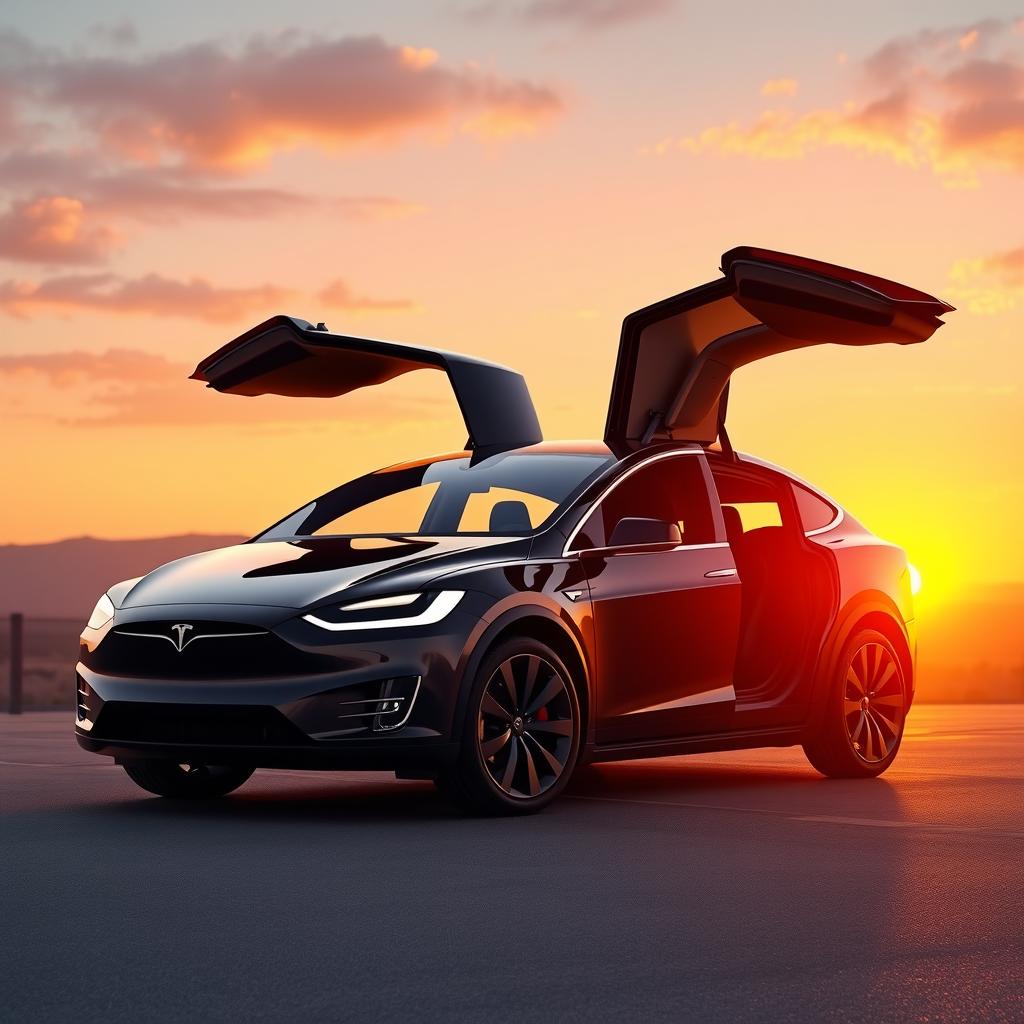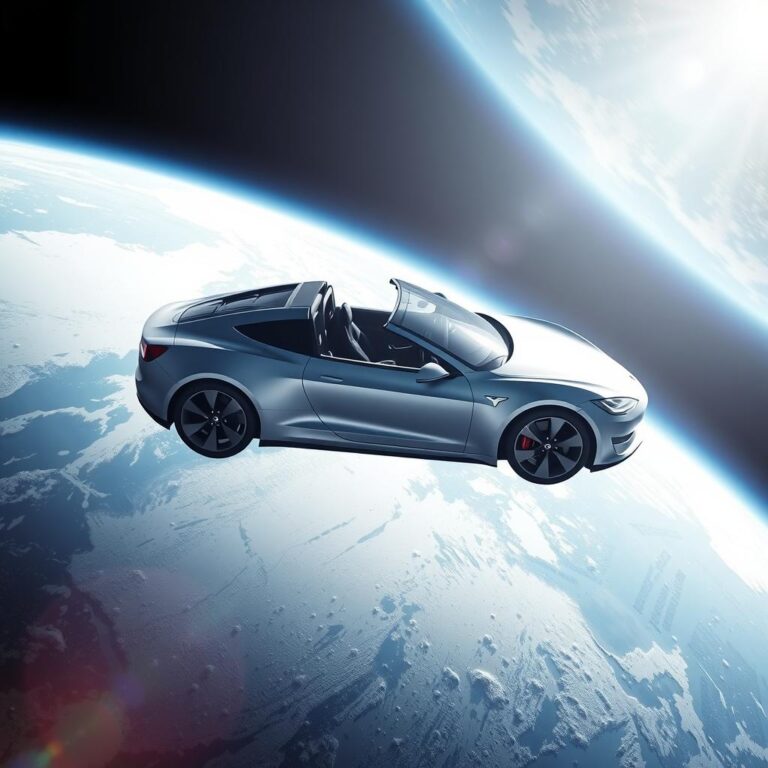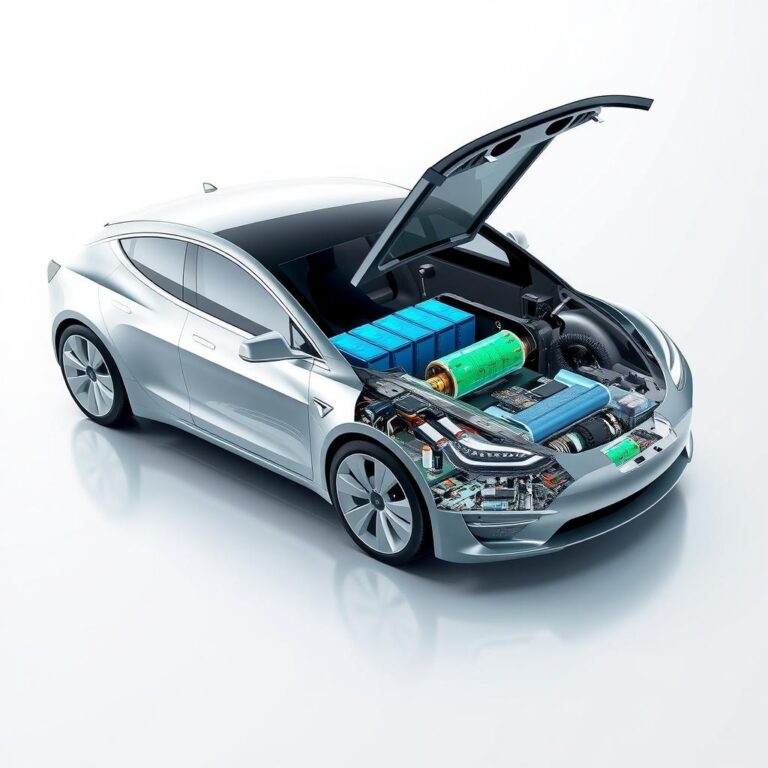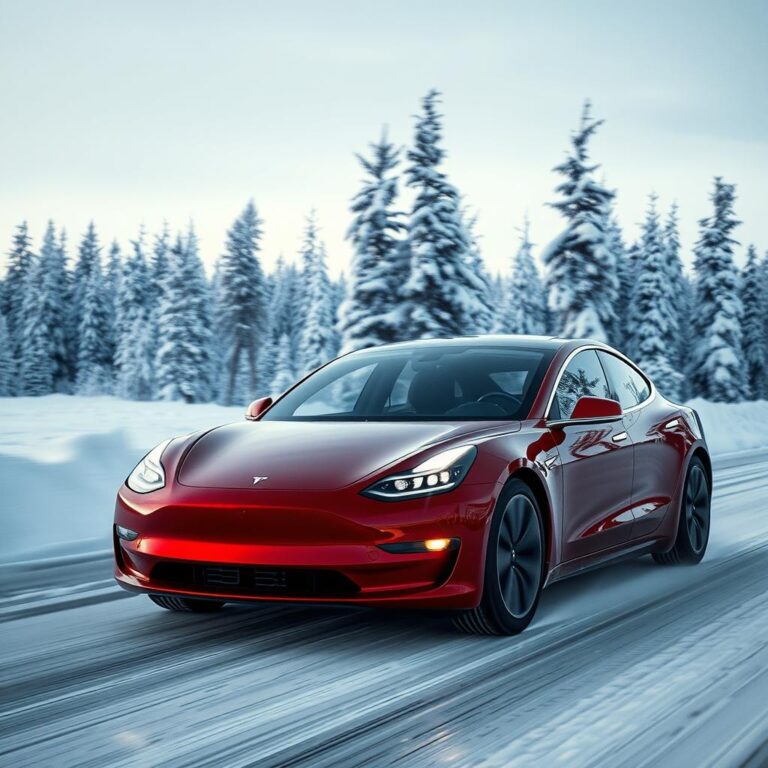Are Tesla Cars Junk?
Are Tesla Cars Junk? Debunking the Myths and Addressing the Facts
Over the years, Tesla has become synonymous with electric vehicles (EVs) and innovation. However, as with any high-profile company, Tesla has also faced its fair share of criticism. One common question that pops up is: “Are Tesla cars junk?” Some people argue that Tesla cars are unreliable, prone to mechanical failures, or not worth the investment. In this article, we will explore whether these claims are valid or if they are merely myths fueled by skepticism.
What Are the Claims Against Tesla Cars?
Before diving into whether Tesla cars are “junk,” it’s important to understand the criticisms the company faces. There are several common claims made by critics of Tesla cars:
- Build Quality Issues: Critics argue that Tesla’s build quality, particularly in terms of fit and finish, is inconsistent. Issues like panel gaps, paint imperfections, and rattling noises have been reported by some owners.
- Reliability Concerns: Some have raised concerns about Tesla’s long-term reliability. Tesla owners have reported issues with the car’s electronics, software, and hardware components.
- High Price: Tesla cars are often considered expensive, and some argue that they aren’t worth the premium price tag, especially when compared to traditional gasoline-powered vehicles.
- Charging Infrastructure: The availability of charging stations has been another point of contention. Critics argue that the lack of charging stations in some areas makes it inconvenient to own a Tesla.
While some of these claims may have a kernel of truth, it’s important to look at them in context and analyze whether they reflect the overall quality of Tesla cars. Let’s explore these points in more detail and determine whether Tesla vehicles deserve the label of “junk.”
Build Quality: Are Tesla’s Cars Poorly Made?
One of the most frequent criticisms Tesla faces is related to the build quality of its cars. Some owners and reviewers have reported inconsistencies in the fit and finish of Tesla vehicles. Issues like uneven panel gaps, paint imperfections, and poor alignment have been observed, particularly in earlier models like the Model 3 and Model Y.
However, it’s important to note that Tesla has made significant improvements over the years. The company has addressed many of the early issues with its build quality, and newer models show much better attention to detail. In fact, the latest Tesla models, including the refreshed Model S and Model 3, have received praise for their improved fit and finish.
While it’s true that Tesla’s cars might not have the same level of refinement as luxury brands like Mercedes-Benz or BMW, they still offer excellent performance, cutting-edge technology, and innovative features. The question is, do minor build quality issues outweigh the overall value of the vehicle? For many Tesla owners, the answer is no.
Reliability: Are Tesla Cars Prone to Failures?
Another criticism Tesla faces is related to reliability. Some critics argue that Tesla cars are prone to breaking down, especially as they age. Issues with the car’s electronics, such as malfunctioning displays, software glitches, or unreliable sensors, have been reported by some owners.
However, reliability is a common issue with new technology, and Tesla has worked hard to improve its software and hardware. Over-the-air software updates allow Tesla to fix many issues remotely, often preventing the need for expensive repairs. This continuous improvement is a significant advantage for Tesla owners, as their cars become better over time, thanks to these updates.
In terms of mechanical reliability, Tesla vehicles generally have fewer moving parts than traditional gas-powered cars, which means fewer things can go wrong. The absence of a traditional internal combustion engine (ICE) means that there is no need for oil changes, and many of the parts that usually require regular maintenance in gasoline-powered cars are either absent or much simpler in design in Teslas.
According to sources like Consumer Reports and J.D. Power, Tesla has performed well in reliability rankings compared to other EVs and has shown substantial improvements over the years. While Tesla cars are not completely free from issues, the overall reliability is comparable to, or in some cases better than, many other vehicles in the market.
Price: Are Tesla Cars Worth the Money?
One of the biggest concerns about Tesla cars is their price. Tesla’s cars are often seen as expensive, especially when compared to more traditional gasoline-powered vehicles. For example, the Tesla Model S starts at over $80,000, and even the more affordable Model 3 can easily top $40,000 with added options.
Critics argue that these prices are unjustifiable, especially when compared to the prices of traditional cars that offer similar performance. However, it’s important to consider the long-term value of a Tesla vehicle. While the initial purchase price may be higher, the savings on fuel (electricity is much cheaper than gasoline) and maintenance costs (no oil changes or exhaust systems to worry about) can offset the higher upfront cost over time.
Additionally, Tesla offers cutting-edge technology, including Autopilot, Full Self-Driving capabilities, and over-the-air software updates, which add significant value to the car. Many Tesla owners consider these features worth the premium price, as they provide a unique and enjoyable driving experience that’s hard to match with traditional vehicles.
Charging Infrastructure: Are Tesla’s Charging Stations Accessible?
Another criticism that’s often raised about Tesla is the availability of charging infrastructure. Some people argue that owning a Tesla can be inconvenient because charging stations are not as widespread as gas stations. While Tesla has a large and growing network of Superchargers, they are still primarily located in certain regions, and there can be long wait times at busy locations.
However, it’s important to note that Tesla’s Supercharger network is rapidly expanding, and the company is making significant efforts to improve access to charging stations worldwide. In addition, Tesla owners can charge their vehicles at home using a standard electrical outlet or a dedicated Tesla Wall Connector, which allows for overnight charging. For those who drive frequently, the convenience of home charging can offset the limitations of public charging infrastructure.
In India, where Tesla has yet to launch, the government is investing in building EV charging infrastructure as part of its efforts to promote electric mobility. As more charging stations become available, the inconvenience of charging a Tesla will continue to decrease.
Do Tesla Cars Deserve the “Junk” Label?
So, are Tesla cars junk? The answer depends on what you’re looking for in a vehicle. While Tesla cars have faced criticisms related to build quality, reliability, and pricing, they are far from being “junk.” Tesla’s vehicles offer cutting-edge technology, outstanding performance, and zero emissions, making them a top choice for those seeking a sustainable, high-performance electric vehicle.
Many of the issues raised by critics are common in any new technology, and Tesla has continually worked to address them through improvements in manufacturing, software updates, and customer service. Tesla’s ability to innovate and improve over time sets it apart from many other car manufacturers.
Rather than labeling Tesla cars as junk, it’s more accurate to say that they are an evolving product, with occasional issues but an overall high level of quality and innovation. For many owners, the benefits of owning a Tesla far outweigh any minor issues, making them a highly sought-after vehicle despite the criticisms.
In conclusion, while Tesla cars are not without their faults, they are certainly not junk. Tesla remains a leader in the electric vehicle market, offering high-performance cars with cutting-edge technology. As Tesla continues to grow and improve, it’s likely that many of the concerns raised by critics will be addressed, solidifying Tesla’s position as a top contender in the automotive industry.

What Are the Key Advantages of Tesla Cars?
Despite the criticisms, Tesla cars have several key advantages that make them stand out in the automotive market. Let’s take a look at the benefits of owning a Tesla and why many drivers continue to choose these electric vehicles despite the concerns raised by critics.
1. Impressive Performance
One of the biggest reasons people buy Tesla cars is the outstanding performance. Tesla vehicles are known for their quick acceleration, smooth driving experience, and impressive handling. The instant torque from electric motors means that Tesla cars can accelerate quickly, with the Tesla Model S Plaid going from 0 to 60 mph in just under 2 seconds—making it one of the fastest production cars in the world.
The acceleration and speed that Tesla cars offer are unmatched by most other electric vehicles, and even traditional gas-powered cars. This makes Tesla a great option for driving enthusiasts who want a high-performance vehicle that is also eco-friendly.
2. Cutting-Edge Technology
Tesla is a leader in automotive technology, and its vehicles come equipped with some of the most advanced features on the market. Tesla’s Autopilot system offers semi-autonomous driving capabilities, including adaptive cruise control, lane-keeping assistance, and automatic lane changes. The Full Self-Driving (FSD) package takes it a step further, offering even more advanced features like automatic parking, summon (the ability to move the car without being inside it), and navigating city streets.
In addition to Autopilot, Tesla’s infotainment system is one of the best in the business. The large touchscreen control panel allows you to control almost every aspect of the car, from navigation and media to climate control. The system is highly intuitive, and it’s regularly updated with new features and improvements through over-the-air software updates.
3. Zero Emissions and Environmental Impact
For eco-conscious consumers, Tesla’s electric vehicles offer a huge environmental benefit. Tesla cars produce zero tailpipe emissions, making them far cleaner than traditional gasoline-powered vehicles. With growing concerns about climate change and the environment, driving a Tesla helps reduce your carbon footprint, especially if you charge the vehicle with renewable energy sources like solar power.
In addition to reducing emissions, Tesla is also pushing for the development of sustainable energy solutions. The company produces solar panels and energy storage products that enable homeowners to generate and store clean energy, further enhancing the environmental benefits of owning a Tesla.
4. Long-Term Savings on Fuel and Maintenance
While the upfront cost of a Tesla may be higher than that of a conventional vehicle, the long-term savings can be substantial. One of the most significant savings comes from the fact that Tesla cars run on electricity, which is typically much cheaper than gasoline. In addition, charging at home is more convenient and affordable than frequent visits to the gas station.
In terms of maintenance, Tesla cars require far less upkeep than traditional gas-powered vehicles. Since there is no internal combustion engine (ICE), there are no oil changes, no exhaust systems, and fewer moving parts that require maintenance. The overall maintenance costs for Tesla owners are generally much lower, especially compared to luxury gas-powered cars, which often have expensive maintenance needs.
Addressing Common Concerns About Tesla Cars
While Tesla cars are generally well-regarded, there are some common concerns that potential buyers may have. Let’s address these issues head-on and see if Tesla’s vehicles are really as problematic as some critics claim.
1. Issues with Build Quality
As mentioned earlier, one of the most common criticisms of Tesla cars is related to build quality, particularly the fit and finish of certain components. Issues like inconsistent panel gaps, misaligned doors, and paint imperfections have been reported by some owners, especially in earlier models. However, it’s important to recognize that Tesla has made significant improvements in manufacturing processes and quality control in recent years.
While minor cosmetic imperfections may still be present in some vehicles, they are far less common in newer models like the refreshed Model 3 and Model Y. Additionally, Tesla’s focus on innovation and software updates means that many of the issues that arise are often addressed remotely, often without the need for a visit to the service center.
2. Reliability and Maintenance Concerns
Some critics argue that Tesla’s vehicles are not as reliable as traditional cars, particularly with respect to electronic components. While early models did have some reported issues with their electronics, Tesla has continually worked to improve its software and hardware. Over-the-air software updates allow Tesla to fix many issues remotely, preventing expensive repairs and providing ongoing improvements to the vehicles.
Additionally, Tesla’s electric powertrain is known for being more reliable than the internal combustion engines found in traditional vehicles. With fewer moving parts and no need for regular oil changes, the maintenance requirements for Tesla cars are significantly lower than for most gas-powered cars. Overall, the reliability of Tesla vehicles has improved over the years, and the company continues to enhance its vehicles through software and hardware upgrades.
3. Charging Time and Infrastructure
Another concern that many potential Tesla buyers have is the charging time and the availability of charging stations. While it’s true that charging an electric vehicle takes longer than refueling a gas-powered car, Tesla has an extensive network of Supercharger stations that can charge the battery to 80% in about 30 minutes, allowing drivers to quickly get back on the road.
Additionally, Tesla owners can install a home charging system, which allows them to charge the vehicle overnight. As the charging infrastructure continues to expand globally, it is becoming increasingly easier to travel long distances with an electric vehicle. In regions where Tesla has established a strong Supercharger network, charging is no longer a significant inconvenience.
Do Tesla Cars Deserve the “Junk” Label?
So, are Tesla cars junk? Based on the overall performance, technology, environmental impact, and customer satisfaction, the answer is a resounding no. While Tesla vehicles have faced some criticisms regarding build quality and reliability, they remain some of the best electric vehicles on the market. Tesla has proven itself as a leader in the EV space, constantly improving its cars through software updates and pushing the boundaries of what electric cars can do.
The criticism that Tesla cars are “junk” often stems from a few isolated issues, but these do not define the overall quality and value of the vehicle. With their exceptional performance, innovative technology, and commitment to sustainability, Tesla cars offer a unique driving experience that is far from being “junk.”
In conclusion, Tesla cars are far from junk. They represent the future of electric mobility, offering impressive performance, cutting-edge technology, and a commitment to sustainability. While some minor issues may arise, they are common in any new technology and do not diminish the overall quality of the car. If you’re looking for a high-performance, eco-friendly car with innovative features, a Tesla is an excellent choice.




